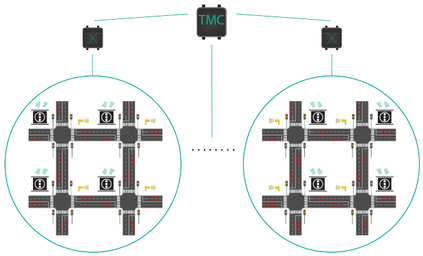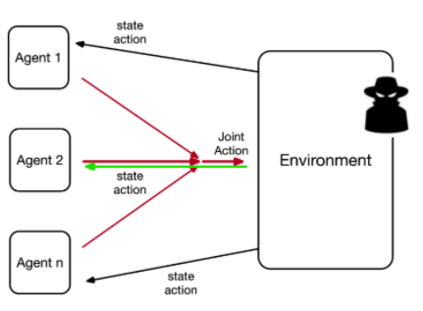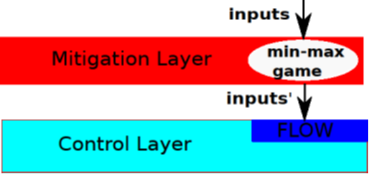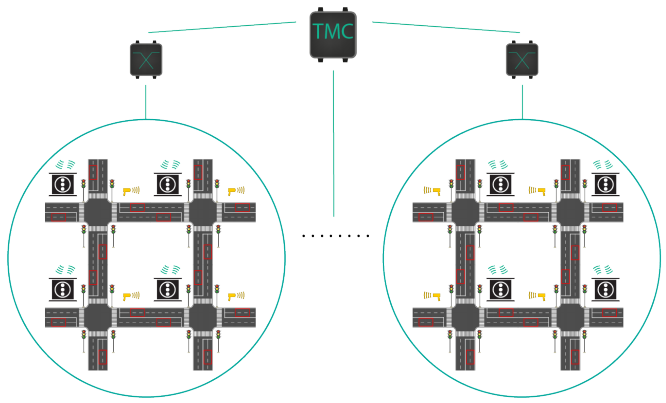Connected and Autonomous Vehicles (CAVs) with their evolving data gathering capabilities will play a significant role in road safety and efficiency applications supported by Intelligent Transport Systems (ITS), such as Traffic Signal Control (TSC) for urban traffic congestion management. However, their involvement will expand the space of security vulnerabilities and create larger threat vectors. In this paper, we perform the first detailed security analysis and implementation of a new cyber-physical attack category carried out by the network of CAVs against Adaptive Multi-Agent Traffic Signal Control (AMATSC), namely, coordinated Sybil attacks, where vehicles with forged or fake identities try to alter the data collected by the AMATSC algorithms to sabotage their decisions. Consequently, a novel, game-theoretic mitigation approach at the application layer is proposed to minimize the impact of such sophisticated data corruption attacks. The devised minimax game model enables the AMATSC algorithm to generate optimal decisions under a suspected attack, improving its resilience. Extensive experimentation is performed on a traffic dataset provided by the City of Montreal under real-world intersection settings to evaluate the attack impact. Our results improved time loss on attacked intersections by approximately 48.9%. Substantial benefits can be gained from the mitigation, yielding more robust adaptive control of traffic across networked intersections.
翻译:具有不断演变的数据收集能力的连接和自主车辆(CAVs)将在公路安全和效率应用方面发挥重要作用,这些应用得到智能运输系统(ITS)的支持,如交通信号控制(TSC),用于城市交通拥堵管理;然而,它们的参与将扩大安全脆弱性的空间,并造成更大的威胁矢量。在本文件中,我们进行了首次详细的安全分析,并实施了由CAVs网络进行的新的网络物理攻击类别,以对抗适应性多点交通信号控制(AMATSC),即协调Sybil袭击,使用伪造或假冒身份的车辆试图改变AMATSC算法收集的数据,以破坏其决定。因此,提议在应用层采取新的游戏理论减缓方法,以尽量减少这种复杂的数据腐败袭击的影响。设计的小式游戏模式使AMATSC算法能够在可疑袭击下产生最佳决策,提高其复原力。对蒙特利尔市在现实世界交叉环境中提供的交通数据集进行了广泛的实验,以评估攻击影响。我们改进了对被攻击的交通阻隔路影响的时间损失,通过大约48.9%的快速控制,从而获得了对受攻击的网络进行更稳健健健的平衡控制。












